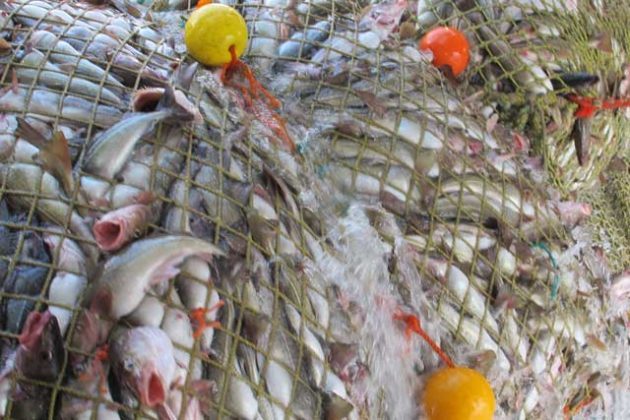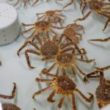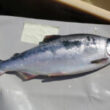Animal Welfare in Fisheries

This project investigates challenges related to animal welfare in fisheries in a world where both nature and technology are constantly changing.
Start
01. Mar 2022
End
31. Dec 2024
Funded by
Nofima
Project Manager(s):
Background
Many ethical debates arise in connection with animal welfare. From a broader perspective, this includes the moral justification to kill a sentient animal for food when non-sentient alternatives (such as plants) are available.
The debate may consider the degree of pain or suffering that is acceptable to inflict on animals used for human consumption, how one can minimise the suffering one inflicts and how one can balance any increased costs of humane fishing methods in relation to the benefits of better fish welfare.
In cases where it is possible to identify more gentle fishing methods, it may be desirable to motivate fishermen to change their practices and methods.
The fact that relatively little attention has been directed towards animal welfare in today’s fisheries may be because it is considered a highly contentious issue that fuels a polarised society: from animal rights activists who may want to ban fishing altogether, to a fishing industry that strongly wants to defend its current practice, at least as long as there is no suitable, economically viable alternative.
In addition, climate change could have dramatic consequences for fisheries in the future because it could change the availability of fish, but also because heat waves and more acidic seas affect the stress mechanisms of fish and their ability to tolerate the stresses of fishing.
Goal
The purpose of this project is to strengthen Nofima’s expertise on animal welfare in fisheries, with a main focus on the whitefish industry, as well as identify challenges related to the topic in a world where both nature and technology are constantly changing.
Sub goals
Sub goal 1:
- Development of an interdisciplinary base of expertise regarding animal welfare in fisheries that will conclude in an interdisciplinary, scientific, peer-reviewed article.
Sub goal 2:
- Develop a toolbox for cod welfare indicators
- Investigate the potential effects of rising ocean temperatures and acidification in the different life phases of fish. In addition, we will look at how this affects survival rates and the ability to cope with stresses and recovery from catch-induced stress
Sub goal 3:
- Assess market forces that can act as drivers in the direction of better animal welfare
- Investigate the willingness to pay for animal welfare and assess whether certification schemes will change the willingness to pay
Sub goal 4:
- Assess which regulatory instruments can be used to improve animal welfare in fisheries and analyse the cost implications of these
What we are doing
In order to strengthen expertise on animal welfare in fisheries, we are conducting open dialogues with other research communities and arranging workshops to discuss topics related to animal welfare.
We wish to raise the profile of the topic in the public domain by attending the Nor-Fishing exhibition and by giving presentations at Forskningsdagane.
In addition, we are conducting a large systematic review of relevant peer-reviewed literature.
In May 2022, we started a trial involving juvenile cod. The trial aims to understand how climate-related stressors, in particular heat waves and high levels of carbon dioxide (CO2), affect the health and welfare of Atlantic cod (Gadus morhua).
We are investigating whether heat waves affect the fish’s ability to tolerate stress.
The results of this trial will help us develop a toolbox for cod welfare indicators.
Society is changing and there is an increasing focus on animal welfare, including wild fish. A consequence of this may involve statutory changes in the fisheries. These changes could have consequences for fishery economies, which in turn could have consequences for society.
Firstly, this will most likely lead to changes in fishing costs and perhaps the composition of the costs. For example, fuel consumption is particularly relevant in a climate context. In addition to the cost implications, the supply of food could also change as a result of regulatory measures and the fishing fleet’s adaptation to this.
Strategic priority areas
Nofima invests its own resources in order to increase competence in useful, relevant and innovative areas and strengthen our position among the leading applied research institutes.
Active projects
Some previous projects
Research areas
Capture fisheries
Topics
Fish welfare
Research facilities
Tromsø Aquaculture Research Station
Similar projects





